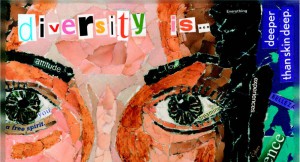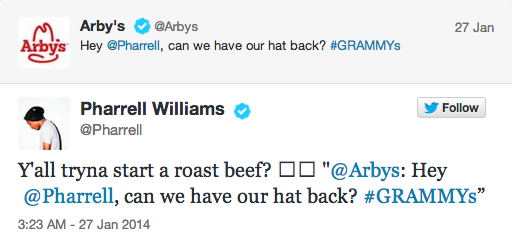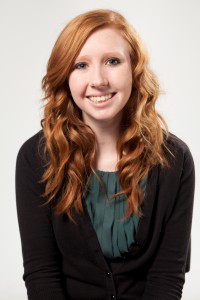As new professionals in the public relations field, we constantly work with people of all walks of life across many disciplines. Working with a diverse range of people opens our eyes to the possibilities and opportunities out there.

That being said, the PR profession is not as diverse as you might think despite ongoing and tremendous progress that has been made. According to the PRSA Foundation, ethnic groups make up 30 percent of the U.S. population yet only 10 percent of minorities work in public relations.
When most people hear about diversity, the primary identifiers that come to mind include race, ethnicity and sexual orientation. There are many more than that, some of which you might least expect. What makes everyone unique and different in their own ways most likely falls under this category. To name a few, it also includes income level, religion, disabilities, socioeconomic status and age.
Addressing such issues is no easy task yet very much achievable. Local PRSA Chapters can do their part in working on diversity initiatives custom tailored to their communities in order to help diversify its memberships. PRSA members can serve as mentors to PRSSA students of all walks of life as a way to provide professional guidance and support to help prepare the next generation of leaders.
One attribute of PR professionals is that we are storytellers. We all have stories of our own to tell based on our knowledge, experience and upbringing. As no two stories are completely alike, it is having those unique stories that makes us diverse. By learning from one another about our differences, it helps us become competent professionals as a result. If we want to stand out as professionals getting started in this field, it is important that our individual stories be heard to help ourselves advance in this profession.
Now, I would like to hear from you. Each month, I hope to feature on this blog a new professional of different backgrounds and how it relates to your experiences as a PR professional. Speak from the heart so that we can all understand where you are coming from. If you are interested in submitting your story, email simonoh804@gmail.com. I look forward to hearing from as many new professionals as possible.
 Simon Oh is the diversity liaison for the PRSA New Professionals executive committee. He is currently a graduate student at San Jose State University, studying transportation management. His professional background includes public affairs and community relations within the transportation field. Connect with him on Twitter and LinkedIn.
Simon Oh is the diversity liaison for the PRSA New Professionals executive committee. He is currently a graduate student at San Jose State University, studying transportation management. His professional background includes public affairs and community relations within the transportation field. Connect with him on Twitter and LinkedIn.





 If you can, ask fellow co-workers you trust about their salary when they were interns and offered a full-time position. When you’re given the contract, take it home and read through every detail. Look for all it includes: responsibilities, salary, insurance and other perks such as compensations for a phone, gym membership, professional development, etc. When negotiating, make sure to talk about all the work you’ve completed and if you’re asking for an increase, give a range or a few options and reasons for why you believe you deserve more (for example, between 3-5K more because of X or PRSA membership compensated because X).
If you can, ask fellow co-workers you trust about their salary when they were interns and offered a full-time position. When you’re given the contract, take it home and read through every detail. Look for all it includes: responsibilities, salary, insurance and other perks such as compensations for a phone, gym membership, professional development, etc. When negotiating, make sure to talk about all the work you’ve completed and if you’re asking for an increase, give a range or a few options and reasons for why you believe you deserve more (for example, between 3-5K more because of X or PRSA membership compensated because X). Nicole Bersani is an assistant account executive Social@Ogilvy and also serves as the PRSA New Professionals Section mentorship co-chair. Connect with her on Twitter
Nicole Bersani is an assistant account executive Social@Ogilvy and also serves as the PRSA New Professionals Section mentorship co-chair. Connect with her on Twitter  1. Research your travel destination before you board the plane –Typically, you’re going to have down time on business trips so it’s a good idea to look up popular bars, restaurants and coffee shops in the city. And, if traveling with a client who isn’t familiar with the area, it’s a good idea to get a feel of the land ahead of time. That way, when the down time comes, you can suggest things to do and get to know your client a little better in the process
1. Research your travel destination before you board the plane –Typically, you’re going to have down time on business trips so it’s a good idea to look up popular bars, restaurants and coffee shops in the city. And, if traveling with a client who isn’t familiar with the area, it’s a good idea to get a feel of the land ahead of time. That way, when the down time comes, you can suggest things to do and get to know your client a little better in the process Kelsey Spellman (
Kelsey Spellman (